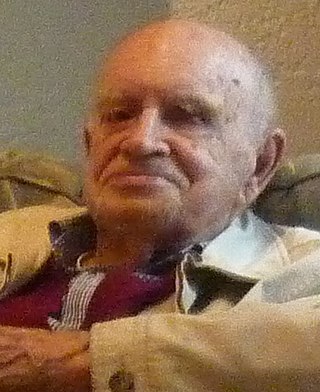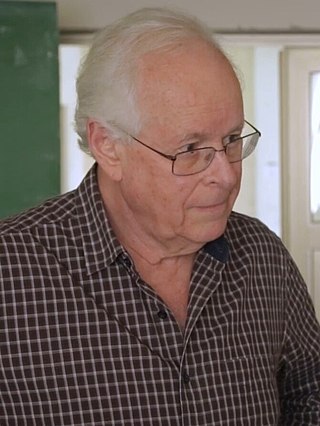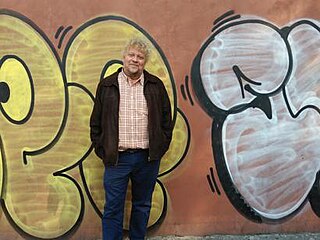Biography
Carlos Pereda did his BA studies in Philosophy and Education Sciences at the University of the Republic, Uruguay, and won the UNESCO Prize for the best bachelor thesis in 1968 awarded by the Paris Nanterre University, France. He completed his masters and doctorate studies at the University of konstanz, Germany.
In 1979 he joined the Universidad Autónoma Metropolitana as a professor and then in 1984 he joined UNAM's, Institute for Philosophical Research.
He has done postdoctoral visits and has been a lecturer at the University of Oxford (1979), Brown University (1982), Alexander Von Humboldt-Stiftung (1986-88), CSIC Spain (1993-94), University of Buenos Aires (1996), Charles III University of Madrid (1999, 2006-2007), University of Virginia (2001), Complutense University of Madrid (2003-2004), University of the Republic (2004), University of Texas (2005), Spain's National University of Distance Education (2007), and the University of Barcelona (2009).
In 1998 he won the National University Prize in Humanities Research awarded by UNAM and in 2008 the Siglo XXI Essay Prize for his book Learnings from the Exile [Los aprendizajes del exilio]. He has been part of the jury for the Octavio Paz Poetry and Essay Award (1999) and the National University Award (1999-2002, 2006-2007). He was president of the Mexican Philosophical Association (1998-2000) and of the Inter-American Society of Philosophy (1998-2004). In November 2011, the Institute of Philosophical Research held an event in honor of his work and career: Normativity and Argumentation. Dialogues with Carlos Pereda. He is currently a member of the Institut International de Philosophie.
Alejandro Rossi was born in Florence, Italy of Venezuelan mother and Italian father) was an Italian-Venezuelan writer.
Arturo Andrés Roig was an Argentine philosopher.

Enrique Domingo Dussel Ambrosini was an Argentine-Mexican academic, philosopher, historian and theologian. He served as the interim rector of the Universidad Autónoma de la Ciudad de México from 2013 to 2014.

Héctor Jesús Zagal Arreguín is a Mexican philosopher, essayist, novelist, and associate member of Opus Dei. As a scholar he specializes in Aristotle.

Ramón Xirau Subías was a Spanish-born Mexican poet, philosopher and literary critic.
Daniel Innerarity Grau is a Spanish philosopher and essayist.
Juan Antonio Nuño Montes was a philosopher, writer and university professor.

Ricardo Guillermo Maliandi Argentine writer and philosopher, devoted to ethics.
Juan Manuel Silva Camarena, is a Mexican philosopher, Cathedratic Professor and academic functionary.
Juliana González Valenzuela is a Mexican philosopher.

Enrique Leff is a Mexican economist, environmental sociologist and environmentalist. He has written 25 books and 180 articles on political ecology, environmental sociology, environmental economics, environmental epistemology and environmental education. He is regarded as one of the key environmental thinkers in Latin America.
Dora Elvira García González is a Mexican professor and researcher with the Monterrey Institute of Technology and Higher Studies as well as director of the humanities school of the Mexico City Campus. Her research work has been recognized by Level II membership in the Mexico’s Sistema Nacional de Investigadores.

Luis Villoro Toranzo was a Spanish–Mexican philosopher, researcher, university professor, diplomat, academic and writer. He published more than ten books between 1950 and 2007.
Ezra Heymann was a philosopher and university professor.
José Luis Gómez Martínez is a professor emeritus of Spanish at the University of Georgia. Essayist and literary critic, his research into the theory of the essay, along with his work on Hispanic thought and Latin American fiction helped push literary boundaries and open up new lines of thinking within and outside of academia. During his professional career José Luis Gómez won several awards for his scholarly contributions, including the prestigious Guggenheim Memorial Foundation Fellowship (1984–1985), the Albert Christ-Janer Award (1988), named Professor of the Year by the AATSP-GA, the 1989 Sturgis Leavitt Prize. In 2000 he was elected Membro Correspondente da Academia Brasileira de Filosofia.

Ernesto Priani is a philosopher, professor, digital humanist, and digital editor.

Stefan Gandler is a philosopher and social scientist. He studied at Frankfurt University and has lived in Mexico since 1993

Celia Amorós Puente is a Spanish philosopher, essayist and supporter of feminist theory. She is a key figure in the so-called equality feminism and focused an important part of her research in the building of relations between Enlightenment and feminism. Her book Hacia una crítica de la razón patriarcal constitutes a new outlook on the gender perspective of philosophy, revealing the biases of androcentrism and claims a critical review on behalf of women.

Julio Cabrera is an Argentine philosopher living in Brazil. He is a retired professor of the Department of Philosophy at the University of Brasília and former head of the department. Previously he taught in Argentina, at the National University of Córdoba, the University of Belgrano and then in Brazil at the Federal University of Santa Maria. He is best known for his works on "negative ethics" and cinema and philosophy. Other areas of philosophy that he deals with are philosophy of language, logic and Latin American philosophy.

María José Guerra Palmero is a Spanish philosopher, writer, and feminist theorist. She holds a Ph.D. in Philosophy and is a professor in the area of moral philosophy at the Faculty of Humanities of the University of La Laguna (ULL) in the Canary Islands. Since 2017, she has been president of the Red española de Filosofía. From July 2019 until May 25, 2020, she served as Minister of Education, Universities, Culture and Sports of the Gobierno de Canarias under Ángel Víctor Torres.
This page is based on this
Wikipedia article Text is available under the
CC BY-SA 4.0 license; additional terms may apply.
Images, videos and audio are available under their respective licenses.











